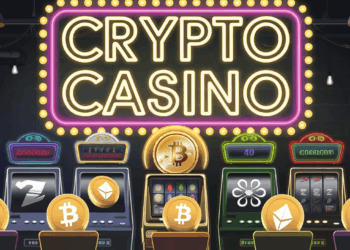The world of mobile entertainment is undergoing a significant transformation. With the rise of smartphones and tablets, people are spending more time than ever before on their devices, seeking out new and exciting ways to pass the time. One trend that has been gaining momentum in recent years is the use of gamification in mobile apps. Gamification refers to the use of game design elements and mechanics in non-game contexts, such as apps and websites. This approach has been shown to increase user engagement, motivation, and overall enjoyment. In the context of mobile entertainment, gamification has given rise to a new breed of apps that are blurring the lines between games and other forms of entertainment. One such example is the crypto casino app, which combines the thrill of casino games with the security and transparency of blockchain technology.
Introduction to Gamified Life
The concept of gamified life refers to the integration of game design elements and mechanics into everyday life. This can include everything from fitness apps that reward users for reaching certain milestones, to social media platforms that use likes and shares to encourage engagement. In the context of mobile entertainment, gamified life is all about creating immersive experiences that draw users in and keep them coming back for more. Casino-style apps, in particular, have been at the forefront of this trend, using a combination of luck, skill, and social interaction to create engaging experiences that are hard to put down. Whether it’s a crypto casino app or a more traditional online casino, these apps are using gamification to create a new type of entertainment that is both fun and rewarding.
The Psychology of Gamification
So, why are gamified apps so effective at keeping users engaged? The answer lies in the psychology of gamification. Games have long been known to have a profound impact on human behavior, motivating us to take action, persevere through challenges, and strive for excellence. By incorporating game design elements into non-game contexts, app developers can tap into this motivational power, creating experiences that are both enjoyable and rewarding. One key aspect of gamification is the use of rewards and feedback. When users achieve certain milestones or complete specific tasks, they are rewarded with points, badges, or other incentives. This feedback loop creates a sense of accomplishment and motivates users to continue playing or engaging with the app.
The Rise of Casino-Style Apps
Casino-style apps have been around for several years, but it’s only recently that they have started to gain mainstream popularity. These apps offer a range of games, from slots and poker to blackjack and roulette, all of which can be played for fun or for real money. One of the key factors driving the growth of casino-style apps is the increasing availability of high-speed internet and mobile devices. With more people than ever before having access to smartphones and tablets, the potential audience for these apps has expanded significantly. Additionally, advances in technology have made it possible to create more sophisticated and immersive gaming experiences, with features such as live dealers, virtual reality, and social interaction.
The Benefits of Gamified Apps
So, what are the benefits of gamified apps, and why are they becoming so popular? One of the main advantages of these apps is that they provide a fun and engaging way to pass the time. Unlike traditional games, which can be repetitive and boring, gamified apps offer a constantly changing experience, with new challenges and rewards to keep users engaged. Another benefit of gamified apps is that they can be played anywhere, at any time. Whether you’re commuting to work, waiting in line, or simply relaxing at home, these apps are always available, providing a convenient and entertaining way to fill downtime.
The Future of Mobile Entertainment
As the world of mobile entertainment continues to evolve, it’s likely that we’ll see even more innovative and immersive experiences emerge. One area that is likely to play a major role in the future of mobile entertainment is virtual reality (VR) and augmented reality (AR). These technologies have the potential to create entirely new types of gaming experiences, with immersive, interactive environments that simulate the thrill of a real casino. Another area that is likely to grow in importance is social gaming. As more people become connected through social media and online communities, the demand for social gaming experiences is likely to increase, with apps that allow users to interact with each other, share tips and strategies, and compete in tournaments and challenges.
The Role of Blockchain in Mobile Entertainment
Blockchain technology is also likely to play a major role in the future of mobile entertainment, particularly in the context of casino-style apps. By providing a secure, transparent, and decentralized platform for gaming, blockchain technology can help to build trust and confidence among users, who can be assured that games are fair and that their funds are safe. The use of blockchain technology can also help to reduce the risk of fraud and cheating, creating a more level playing field for all users. As the use of blockchain technology becomes more widespread, we can expect to see more crypto casino apps and other blockchain-based gaming platforms emerge, offering users a new type of gaming experience that is both secure and transparent.
Conclusion
In conclusion, the rise of gamified life and casino-style apps is transforming the world of mobile entertainment. By incorporating game design elements and mechanics into non-game contexts, app developers can create immersive experiences that are both fun and rewarding. Whether it’s a crypto casino app or a more traditional online casino, these apps are using gamification to create a new type of entertainment that is both engaging and motivating. As the world of mobile entertainment continues to evolve, it’s likely that we’ll see even more innovative and immersive experiences emerge, with technologies such as virtual reality, augmented reality, and blockchain playing a major role in shaping the future of the industry.



























































